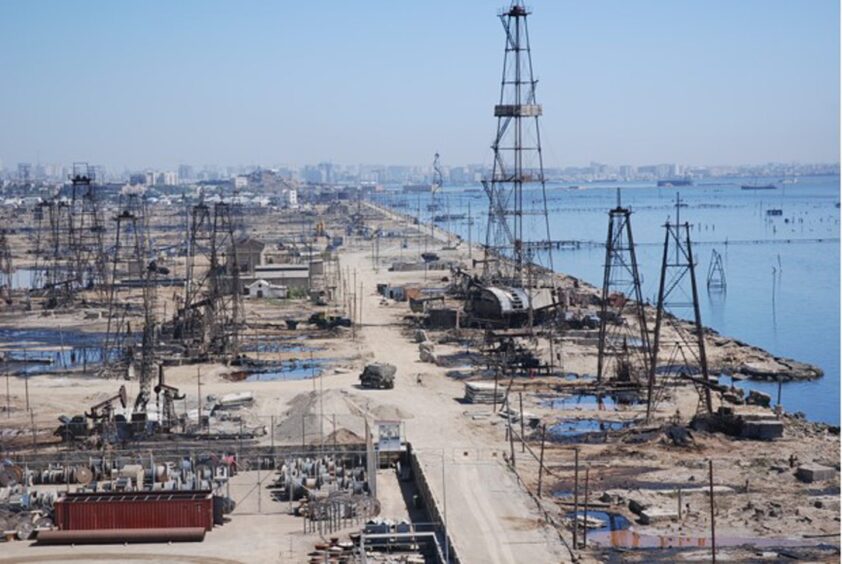
Several years ago, it seemed that some leading environmental non-governmental organisations (NGOs) had started to concede UK Big Oil’s claim that a managed transition away from high- to low-carbon energy might be strategically more effective as a means of reaching Net Zero by 2050 than the slam-dunk kill demanded by Just Stop Oil.
But now the gloves are now off across the board; Greenpeace in particular.
On July 31 it waded in to the attack regarding the latest UK oil & gas exploration licensing round, which the NGO believes should never have been tabled.
“This new announcement is nothing but a cynical political ploy to sow division, and the climate is collateral damage,” said Philip Evans of Greenpeace UK Climate.
“Just as wildfires and floods wreck homes and lives around the world, Rishi Sunak’s government has decided to row back on key climate policies, attempted to toxify Net Zero, and recycled old myths about North Sea drilling.”
The natural world has been very important to me since the days of Flower Power. I joined the WWF when 16 and paid my sub for 30 years until, in my opinion, the organisation lost its way.
Today I have no ties to any NGO whatsoever; that is constraining to my work as an energy journalist. But, for me, Norway’s Bellona Foundation stands head and shoulders above the NGO pack hunting Big Oil.
It was established in 1986 by environmentalist Frederick Hauge who has, in my opinion, fought his battles against Big Oil intelligently, including actively promoting carbon capture and having the chutzpah to work with leading operators across the North West Europe Continental Shelf, the Norwegian Government and the EU.
And even Scotland where, in 2017, Bellona had a hand in ensuring that the multi-partner Acorn CCS proposal secured EU support via its Advancing CCS Technologies’ (ACT) funding round.
I’m not aware of any other NGO embedding itself in the energy industry in such a way. Be in no doubt, Hauge is squarely against extending hydrocarbons exploitation, notably in the Norwegian Arctic, for example. And yet he appears pragmatic regarding the strategic transition value of keeping current production of oil and gas alive.
A measure of the man is that, in 2007, Hauge was elected vice chairman of the European Commission’s Technology Platform for CO2 sequestration (ZEP). The same year, TIME Magazine named him “Hero of The Environment”.
Today, the European Commission’s proposal for the Net Zero Industry Act (NZIA), which includes carbon capture and storage (CCS) among the offered technology solutions appears to be on track to play a crucial role in EU decarbonisation efforts.
On October 24, important NZIA hurdles were crossed including giving CCS the green light, to Hauge’s delight.
However, the WWF wasn’t at all happy, claiming the Industry Committee of the European Parliament had weakened the strength of the act by opening up the legislation to too many technologies and allowing projects in protected Natura 2000 areas.
Whilst not a silver bullet, CCS is viewed by Bellona as a critical weapon against climate change. Greenpeace does not.
I perceive naivety among NGOs regarding taking on the hydrocarbons monster globally; oil, gas and coal. It will require a coalition with exceptional leadership to drive it and a huge budget.
Here is a crude measure of the scale of the challenge that lies ahead. The accepted Reuters guesstimate – apparently the only one – is that there may be roughly 29 million abandoned mostly land-based wells on every continent bar Antarctica that have never been sealed. Nobody knows who owns most of them.
Many are known to be collectively leaking a toxic cocktail of nasties. Of major concern is the greenhouse super-gas methane, which far outclasses carbon dioxide as a climate wrecker; and benzene, which is y carcinogenic and of deep concern to the World Health Organisation.
About 3.5 million of the 29 million abandoned wells are in the US.
By contrast, the total number of wells drilled in UK waters is north of 8,000, with the whereabouts of all recorded. The onshore tally is 2,000 of which 1,700 have been plugged and abandoned. Some 250 are currently still producing.
However, they’re minute numbers when set against global and US estimates; even Canada, with around 140-150,000.
If Big Oil can’t sort it out, then governments will have to. Except that few ever will. And it is beyond the power of NGOs.
Recommended for you
